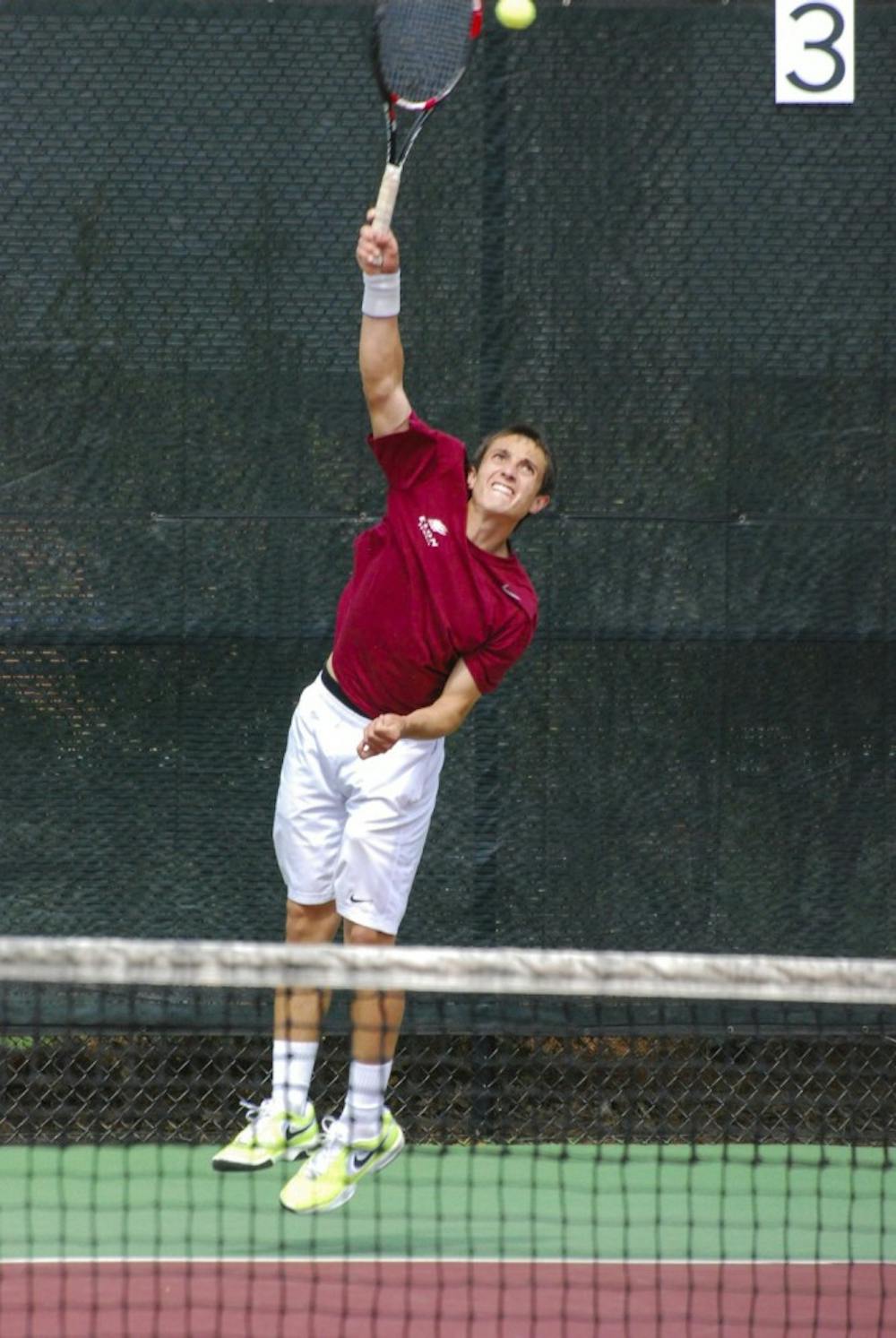Many Div. I tennis players follow roughly the same path to college. They start in high school practicing four or five days a week with their personal coaches. They travel around the country playing in tournaments on the weekends and eventually select a college based solely on its tennis program’s ability to win.
Growing up, Elon University men’s tennis player Brian Kowalski didn’t have those same opportunities. His parents couldn’t afford to send him across the nation each weekend to play tennis, so he was not a highly-ranked or especially well-known junior player. He loved tennis and wanted to play in college, but he was dismissed by top-level programs.
“I’d always grown up thinking that I could play D-I,” Kowalski said. “But when it came down to it, a lot of schools or a lot of coaches didn’t really think I was good enough and ranked high enough for it.”
He joined Emory University’s varsity tennis team in August 2011 and quickly became one of the team’s best players. During the season, he compiled an impressive 20-5 record that culminated with the Eagles winning a national championship.
If that were the end, this would simply be a pleasant story about an unheralded player winning it all in the lower leagues of the NCAA. But Kowalski’s story is just beginning.
As fate would have it, Kowalski’s life, not to mention his tennis career, was thrown a major curveball late in the summer of 2012.
Emory is an expensive private school located in Atlanta. Because of the fact it is a Div. III school, athletic scholarships are not in the cards. Three and a half weeks prior to Kowalski returning to Emory from summer vacation, his parents informed him they could not afford to send him back to the school and he would need to transfer.
Meanwhile, Elon men’s tennis Head Coach Michael Leonard was gearing up for another tennis season when, out of the blue, he was contacted by a certain Div. III player inquiring if Leonard had an open spot on his team for the upcoming season.
Some coaches would have dismissed the cold call as a prank, but Leonard decided to investigate. He ended up quite pleased with what he stumbled upon.
“Everything I heard about him was just positive,” Leonard said. “Then I went and watched him play and he had the intangibles that I liked. I thought he would be a great fit for our team.”
Flashing back to his senior year at Hillsborough High School, Kowalski had admired Elon from afar before choosing Emory. Given the chance to come to Elon, on a tennis scholarship no less, was an opportunity he said he was not going to let slip by.
Today, Kowalski has no regrets on the athletic dream he is living out with the Phoenix, but he is equally grateful for the renowned academic side Elon possesses.
“I was always taught that education is first regardless of how well I’m doing in tennis,” he said, adding that after leaving prestigious Emory, “My parents definitely encouraged me to go to a better academic school like Elon.”
On the courts, Leonard has been satisfied with Kowalski’s choice to come to Elon.
“He’s continuing to get better – he’s got a big upside,” Leonard said. “He’s a competitor. He wants to win. He has a big heart. He’s tough, he doesn’t back down from people. He wants the team to do well and he’s not selfish. Those are qualities you want as a coach.”
Nevertheless, this story would have a disappointing ending if Kowalski was simply a benchwarmer. Last fall at the start of the tennis season, Kowalski was wondering if that would be the case.
“I was confident from being successful in D-III,” Kowalski said. “But it was more just hoping than knowing because I really had no idea.”
Talent is talent, regardless of all else, and Kowalski’s talent has led him to a decent season at No. 5 singles and a superb season at No. 2 doubles. With freshman Robert Lindgren, the duo was an impressive 9-4 through the course of the season.
“We have good chemistry,” Lindgren said. “Our game fits pretty well together. He has a very good net game and I try to set him up from the baseline a lot.”
Even with tennis practice six days a week, Kowalski has still applied himself to his studies. Recently, he was rewarded for his hard work when he was named to the Fall 2012 Dean’s List, an honor he will try to repeat this semester.
Looking back on his unusual and tortuous journey to Elon glory, Kowalski admits two years ago he didn’t think he would be where he is today.
“I never really thought it would happen,” he said.
Success is only determined by where you finish, not how you got there. Kowalski’s success, both on and off the court, marks him not only as a winner, but as a true champion.


